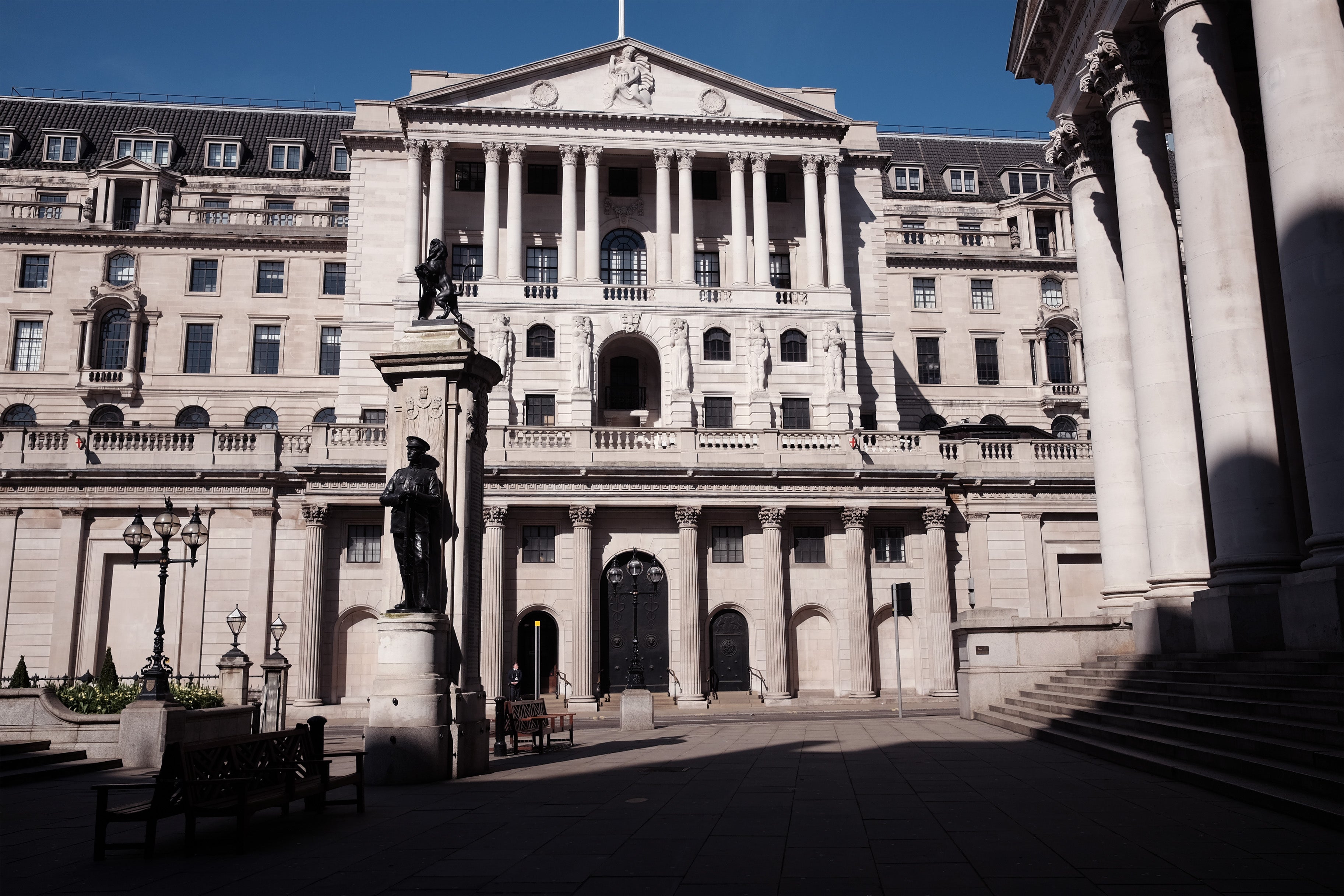Bank of England hikes interest rates to 0.25% despite fears for economy amid Omicron wave
Bank rate increased for first time since August 2018 in bid to tame soaring inflation

The Bank of England has increased interest rates for the first time since the start of the pandemic, despite growing concerns for the economy as Covid case numbers surge.
The Bank’s rate-setting committee voted eight to one in favour of increasing interest rates to 0.25 per cent from a record low of 0.1 per cent.
Silvana Tenreyro was the only member to vote against an increase. The decision came after inflation soared to 5.1 per cent – well above the Bank’s target rate of 2 per cent.
The central bank will also keep up its £895bn quantitative easing programme unchanged.
Typically, central banks do not raise interest rates when the economy is struggling, because more expensive borrowing tends to dampen demand.
Laying out the reasons for its decision on Thursday, the Bank pointed to its projections for the economic recovery, made in November.
However, since the projections were made, the Omicron variant has begun to spread rapidly in the UK. This has raised the prospect of further restrictions, which would slow economic growth.
In the minutes of the decision, the Bank warned that inflation could hit 6 per cent in April. It also downgraded its forecast for growth in the fourth quarter of this year to 0.6 per cent from 1 per cent.
It said: “Most members of the committee judged that an immediate, small increase in Bank rate was warranted. The decision at this meeting was finely balanced because of the uncertainty around Covid developments.”
Wednesday saw a record number of confirmed Covid cases, along with a Downing Street briefing in which the public were advised to limit social contacts and “think carefully” about socialising.
Despite the advice, government ministers have so far refused to lay out a package of support for businesses who are pleading for help.
The Bank said there was “some value” in waiting to understand the severity of Omicron and its impact on the economy, but that “there was, however, also a strong case for tightening monetary policy now, given the strength of current underlying inflationary pressures and in order to maintain price stability in the medium term.”
City analysts remained sceptical about how effective Thursday’s rate rise would be in taming inflation.
“Like most economists, the Bank has been caught off-guard by the speed of price rises,” said Ed Monk, associate director at Fidelity International.
“Even with the action taken today, households should expect their costs to continue to rise for some time. The small rise in rates will have a limited impact on demand and may take time to filter through to consumer behaviour, while many of the factors driving inflation remain outside of the Bank’s control.
“A rise in UK borrowing costs won’t ease up clogged supply chains or lower shipping costs.”
Jack Leslie, senior economist at the Resolution Foundation, said: “While the timing of the Bank’s decision to raise interest rates is odd given the economic damage currently being caused by Omicron, the fact is that it is unlikely to make much difference to either inflation or household budgets.
“The real action is with the Treasury – both in terms of needing to act to support businesses during Omicron, and in shaping the macroeconomic debates.”
Join our commenting forum
Join thought-provoking conversations, follow other Independent readers and see their replies
Comments
Bookmark popover
Removed from bookmarks